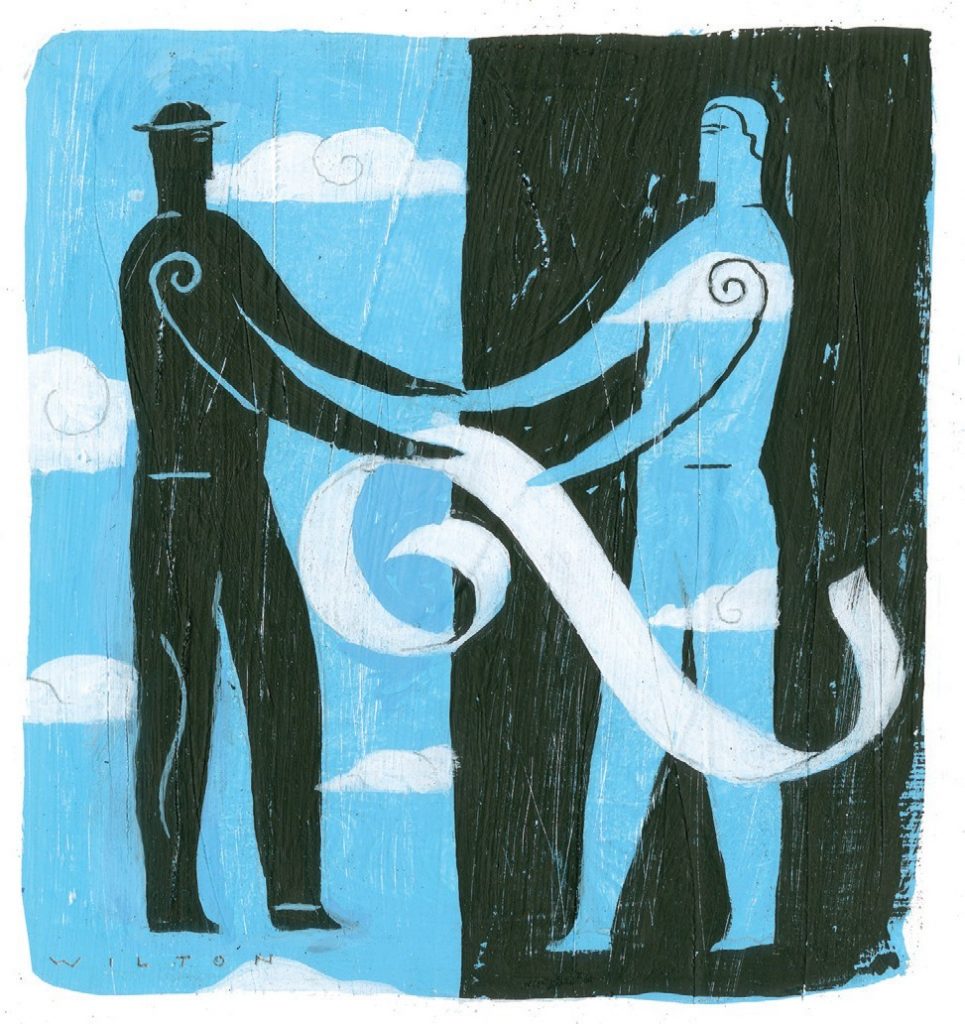The following is an excerpt from the “Letter to Diognetus” written in the early second century, soon after the time of the apostles.
Our role on earth isn’t easy, but it is essential.
Christians are distinguished from other people neither by country, nor language, nor the ethnic customs they observe. They do not inhabit cities of their own or use a unique form of speech.
The everyday course of conduct they follow has not been devised by some philosophical program or agenda. Neither do they, as some do, proclaim themselves the advocates of any merely human ideology. Instead, inhabiting cities of every nation according to the circumstances in which they find themselves, they follow the customs of the natives in respect to clothing, food, and the rest of their ordinary conduct.
A Paradoxical Life
Nevertheless, in a different sense Christians display a remarkably distinctive way of life that is admittedly paradoxical.
As citizens of their countries, they share in all things with their fellow citizens, yet they endure all things as if “aliens and strangers” (Heb. 11:13).
They marry and bear children as others do. But they do not abort their unwanted children as others do. They have a common table (Acts 4:34-37) but not a common bed. They are in the flesh, but they do not live “according to the flesh” (Ro. 8:4, RSV ).

They pass their days on earth, but their “citizenship is in heaven” (Phil. 3:20). They obey the laws of the land (Titus 3:1) and at the same time surpass the require- ments of the laws by their conduct. They love all men and are persecuted by all (Lk. 21:12).
They are unknown, yet condemned; they are put to death, yet restored to life. They are poor, yet make many rich. They lack all things, yet abound in all (2 Cor. 6:9-10). They are dishonored, yet in their dishonor are glorified (Ro. 5:3, Eph. 3:13, RSV ). They are slandered, yet they are justified; they are reviled, yet bless; they are insulted and repay the insult with honor; they do good, yet are punished as evildoers (Lk. 6:22-23,28). When punished, they rejoice as if restored to life (Acts 5:40-41). They are rejected by their Jewish brothers as if they were Gentiles, and they are persecuted by the Gentiles. Yet those who hate them are unable to identify any reason for their hatred.
Here for a Reason
To sum it up: What the soul is in the body, Christians are in the world. The soul is dispersed through all the parts of the body, and Christians are scattered through all the cities of the world. The soul dwells in the body, yet it is not of the body; Christians dwell in the world, yet they are not of the world.
Though the flesh suffers no injury from the soul, it hates the soul and wars against it (1 Pet. 2:11) because the soul restrains the flesh from enjoying illicit pleasures. In the same way, even though the world is not injured by Christians, it hates them because they “say ‘No’ to. . . worldly passions” (Titus 2:12). The soul loves the flesh that hates it; Christians likewise love those who hate them.
The soul is the captive of the body, yet preserves the very body that is its captor. Christians are captives of the world, yet they are the preservers of the world.
The soul is immortal but dwells in a mortal body. Christians too dwell as sojourners in a decaying world, looking for a dwelling in the heavens that will never decay (Heb. 11:14-16).
The soul, when denied food and drink through fasting, becomes stronger. In the same way, Christians, though subjected daily to punishment for their faith, increase the strength of their numbers.
In all these ways, Christians find their relationship to the world difficult. But it would be wrong for them to flee from it. For this is the position to which God has assigned them—and it is glorious.
You’ve been reading from Classics: Wisdom from the past, used by permission of Discipleship Journal. Copyright © 2006, Issue 154, The Navigators. Used by permission of NavPress. All rights reserved.


I enjoyed reading the soul’s description in me and also as I am in the world. So derduk